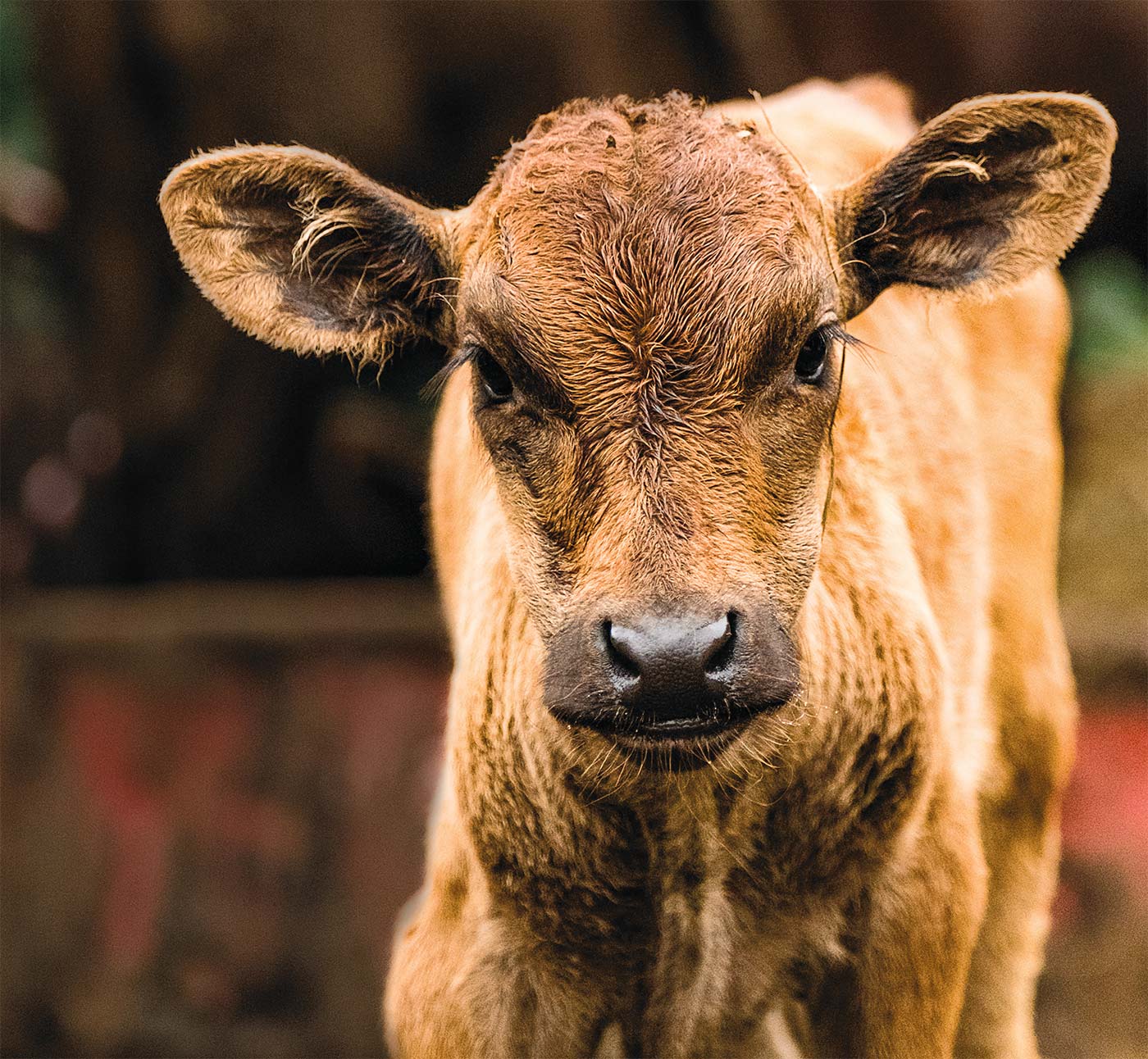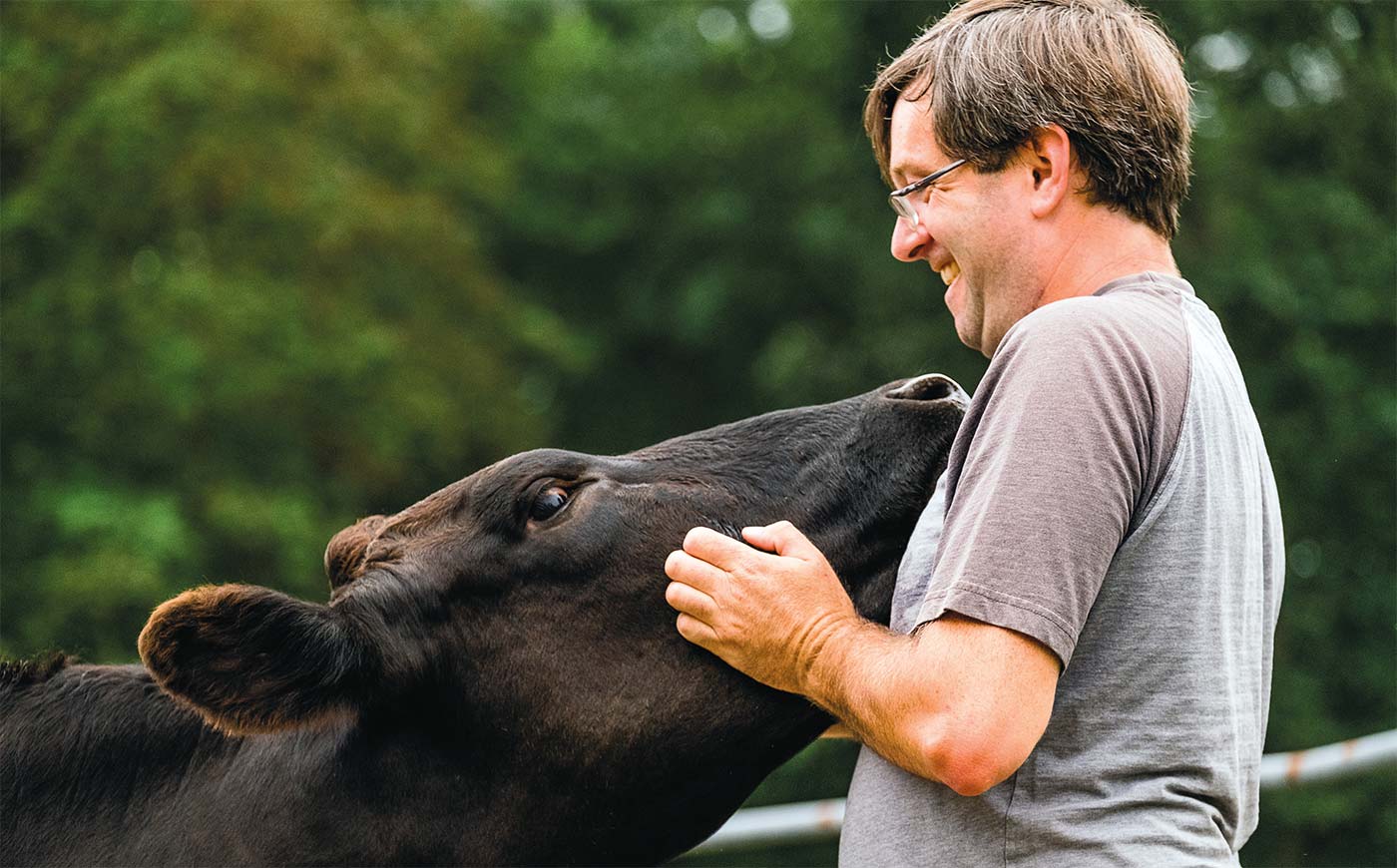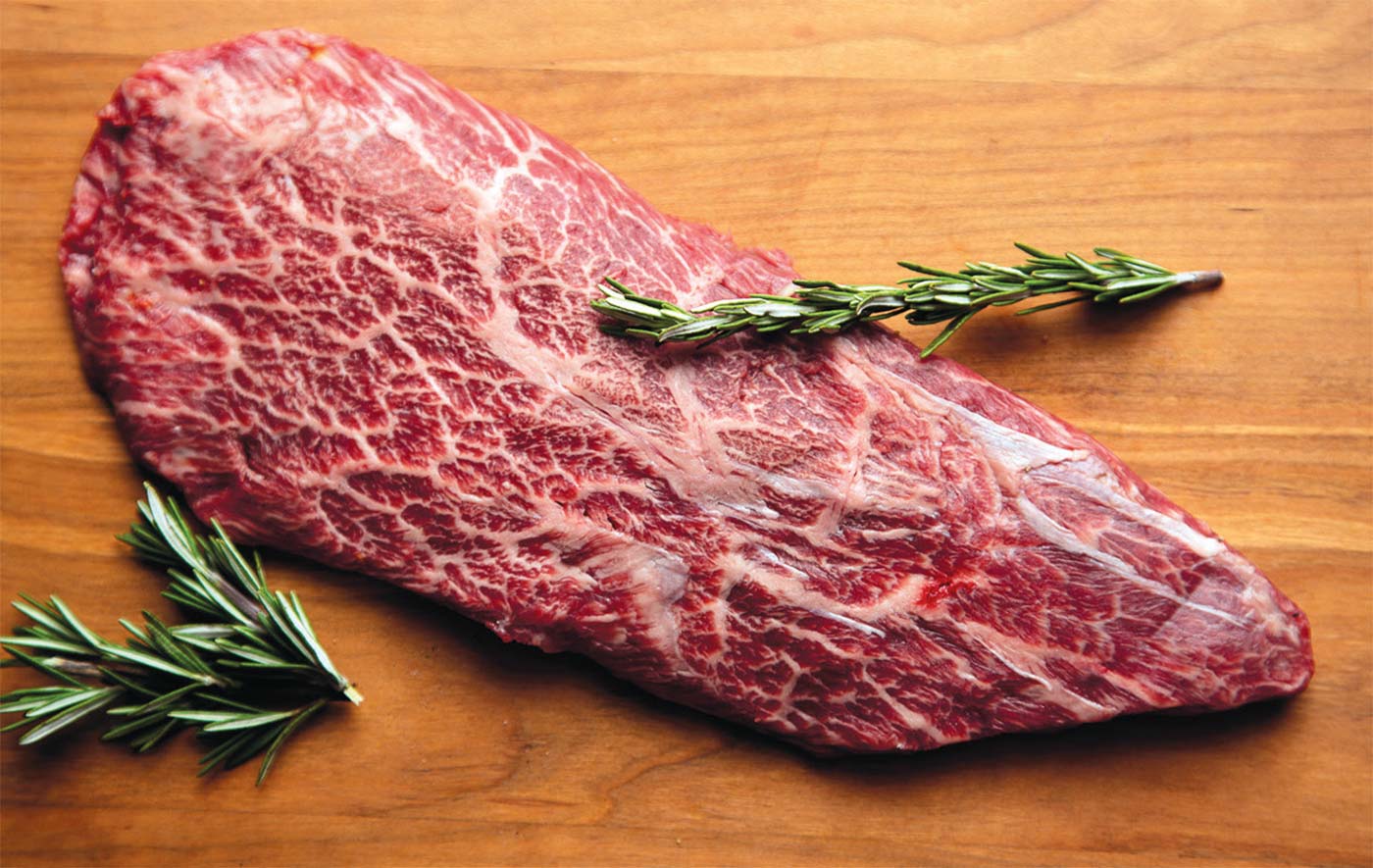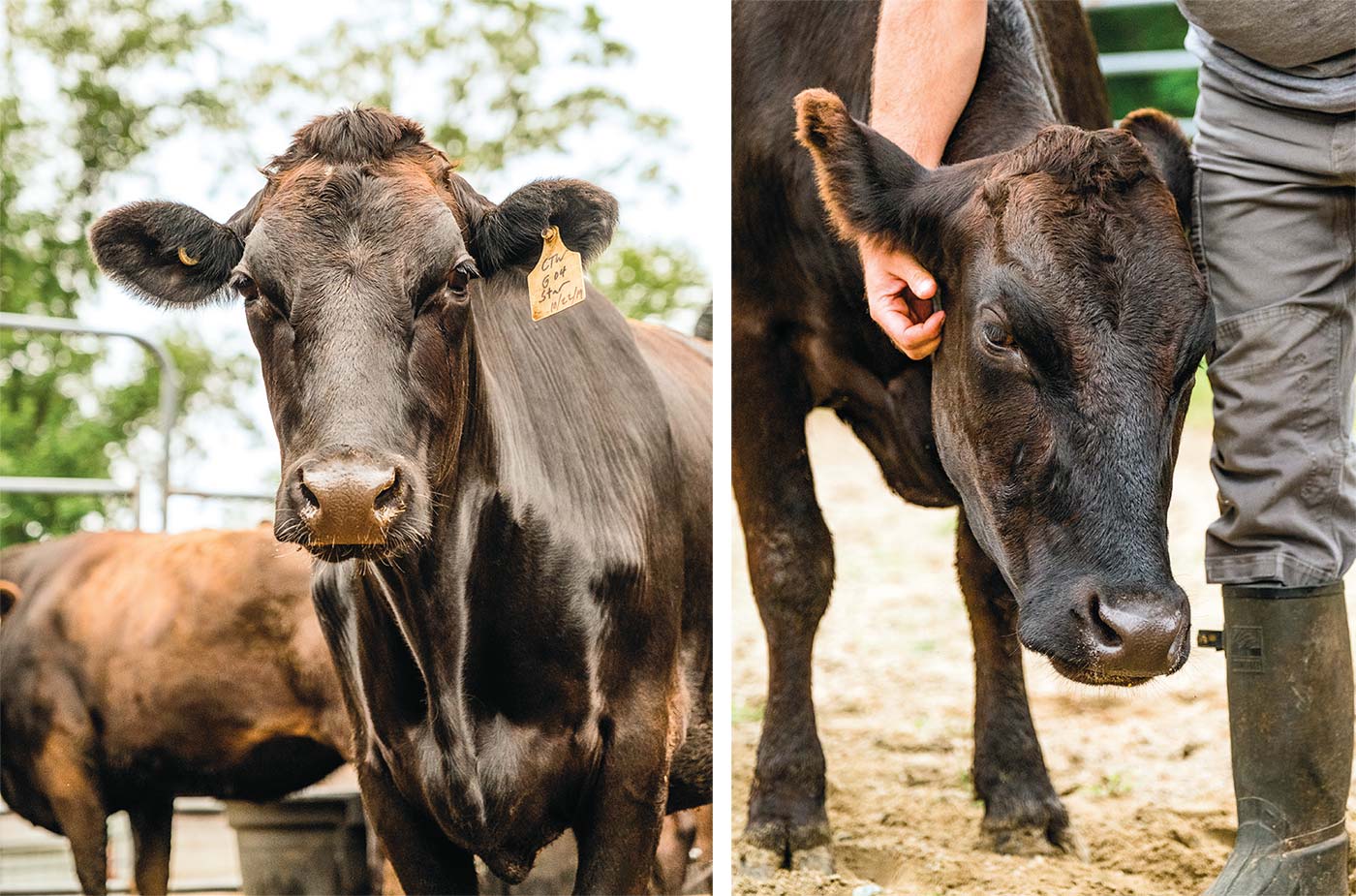100 Percent Wagyu Beef: Raised in Connecticut

Tim Spanos tasted wagyu beef for the first time a few years ago after he saw it on the menu at Johnny's Peking Tokyo in Mystic. Despite the hefty price tag — it was imported from Japan and cost $9 per ounce — Spanos ordered the meat because he was curious.
The landscaper by trade had been hoping to open a farm and had been interested in doing something with cattle but wasn’t sure what yet. He had considered Scottish Highland cattle but concluded they wouldn’t power a viable farm. After he tasted that wagyu, he had his answer.
“I took the first bite, and I was like this is it, this is the beef,” Spanos says. “I went home and that night I started researching.”
Five years ago, Spanos opened Connecticut Wagyu in Preston on 17 acres stretching across two adjoining lots owned by his mother and sister. It offers 100 percent fullblood Wagyu beef as well as less expensive but still high-quality cross wagyu — wagyu cattle cross-bred with other varieties. Customers can pre-order various cuts to pick up at the farm or have shipped. The farm is the only purveyor of local fullblood wagyu beef in Connecticut, though other Connecticut farms offer wagyu cross and are working toward offering fullblood wagyu. Spanos estimates there are only about 50 farms across the U.S. with more than one fullblood wagyu cow and he is one of only three in New England that of which he is aware.
Wagyu beef is known for the fine strips of fat (marbling) found even in its lean meat and is praised for its buttery tender flavor that melts in the mouth — literally. Wagyu fat melts at between 65 and 80 degrees Fahrenheit rather than the 100-plus degrees standard beef often melts at. “Even when you eat wagyu beef raw, the fat melts on your palate,” Spanos says. “It coats your palate, and it holds flavors on your palate longer. Any flavors that are present become more intense.”
This high-fat content also helps wagyu cattle absorb the flavors of the food they eat. “Because there's so much fat in the beef and because of the way the fat holds the flavors, you can taste the difference in wagyu beef from farm to farm. It develops a terroir just like wine,” Spanos says. One wagyu cattle farm in Texas feeds its cows chocolate candy resulting in a unique cut of meat. “You can taste the chocolate in the beef,” Spanos says.

Tim Spanos showing some love to his full-blood wagyu cows

A richly marbled wagyu flatiron steak

At Connecticut Wagyu the cows are fed a diet of non-GMO grains that are mostly locally grown, though the farmer Spanos buys from sometimes runs out of his grain and has to supplement with grains from New Jersey, Pennsylvania, and Massachusetts.
Wagyu means “Japanese cattle” and for most of the 1900s the prized beef was only found in Japan. Then in 1976 four bulls were imported to the United States. Over the next two decades nearly 200 wagyu cattle left Japan, most ending up in the U.S. In 1997, Japan declared wagyu a national treasure and the exportation of live cattle or Tim Spanos showing some love to his full-blood wagyu cows; A richly marbled wagyu flatiron steak their genetics, sperm, eggs, or embryos, was banned. Multiple people in recent years have been arrested for trying to smuggle wagyu genetics outside of Japan.
Today all full-blood wagyu cattle found outside of Japan are descendants of those nearly 200 animals that were exported prior to 1997. This situation has led to some confusion. Some people believe you can’t have fullblood wagyu outside of Japan, which isn’t true. However, in addition to fullblood wagyu beef his farm and others offer cross wagyu, which tends not to have as much marbling as fullblood wagyu. It’s still a tasty and quality cut of meat but is less expensive and should not be confused with full-blood wagyu, Spanos says. Sometimes unscrupulous farms will imply cross-bred wagyu is pure wagyu or market it as “American wagyu” a term Spanos and many other wagyu farmers despise.
Wagyu beef is expensive not only because of the rarity of wagyu cattle but because they are raised for a longer period than commercial cattle. Spanos’ cattle are raised for two to three years before being harvested for beef, much longer than the 14 to 18 months most cattle farms spend raising their beef.
Whether they order from him or another wagyu farmer, Spanos has some advice for consumers who are interested in wagyu but are new to it. First, wagyu customers should be aware that they can eat less wagyu beef than they can regular beef because it is so rich. Spanos says most people can’t handle more than eight ounces of wagyu. Therefore, a 16-ounce steak is less expensive than it might appear. “That $110 steak is actually going to feed two people,” he says. “Don’t get me wrong, it's still not cheap, but it's a different price point when you realize it's going to feed two people, not one person.”
Second, Spanos says, people shouldn’t be too focused on the most expensive varieties. “If you look at just the premium cuts, you're going to be turned off because they are so expensive,” he says. “Our personal favorite as a family is the top round and the bottom round steak. That's our choice. It’s a $23 to $25 a pound steak.”
At the supermarket, top-round or bottom-round steak is usually an undesirable chewy cut of beef, but that’s not the case with wagyu. “It’s absolutely fabulous,” Spanos says of these cuts. These cuts have more marbling than a traditional cut of beef but less than other cuts of wagyu, so they’re still more tender than regular beef but you don’t have to have as small a portion as you might normally with wagyu beef. “You can have a more typical North American serving,” Spanos says.
Finally, Spanos says, if you’re buying wagyu beef you should make sure you are working with a farmer you trust and who can provide verification that their wagyu is full blood. “If you get a weird feeling or if the price is too good to be true, those are your red flags,” he says.
Located at 175 Miller Rd in Preston www.ctwagyu.com




